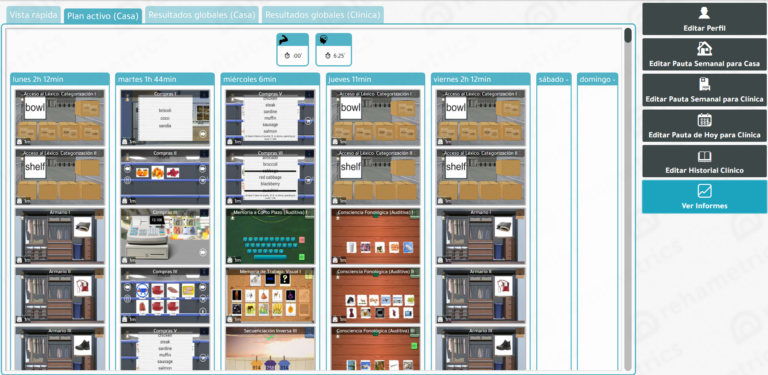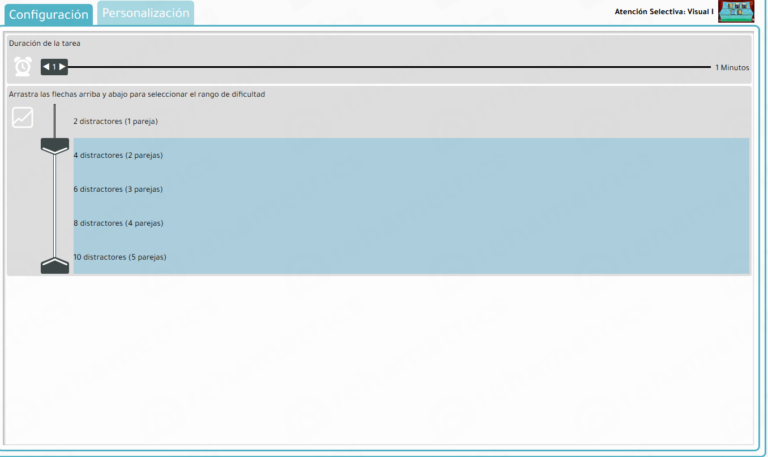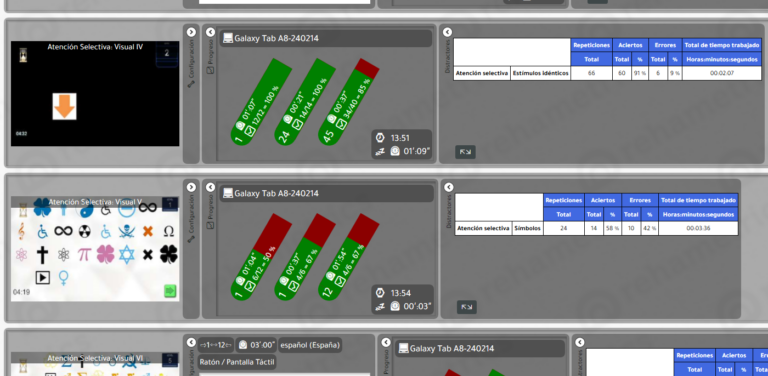What is cognitive fatigue and how to prevent it

When working with patients who have cognitive difficulties, they often require several hours of cognitive stimulation each week. Cognitive fatigue is a state of exhaustion that arises from excessive mental stimuli and an unusually intense mental effort.
Cognitive fatigue can affect anyone, yet individuals with cognitive impairments or brain injuries are more susceptible to it, even during simple tasks. The presence of fatigue can exacerbate the cognitive deficits associated with brain damage, leading to a decline in performance in both daily activities and during rehabilitation.
What are the characteristics of cognitive fatigue?
Cognitive fatigue manifests through several symptoms, including:
– Difficulty to concentrate.
– Memory problems.
– Slow information processing.
– General sensation of mental exhaustion.
Furthermore, it may result in lower motivation and mood disorders, resulting in patient frustration, poor adherence to treatment, and in some cases even the discontinuation of treatmen.
How can I reduce cognitive fatigue in my patients?
It is part of the therapists’ job to prevent their patients from becoming too fatigued. Finding the balance between achieving therapeutic goals and avoiding excessive fatigue presents a significant challenge. Therefore, possessing the knowledge and tools for effective fatigue management is crucial.
To reduce patient fatigue, consider the following strategies:
1. Plan your sessions
When planning your sessions for the week, ensure that you don’t schedule too many complex sessions in a row. This could overwhelm the patient. Spread out sessions according to your patients activity levels, aligning the more demanding activities with the patient’s peak activity periods. Being able to plan sessions beforehand can help in avoiding patient frustration during the sessions.

Planning of weekly sessions with Rehametrics Cognitive.
2. Grade the difficulty and cognitive load of the activities.
When a patient engages in activities that are overly challenging, it can lead to increased frustration and fatigue. By grading the difficulty and customizing the activities, we can adjust them to our patient’s level depending on the specific cognitive function being addressed.

3. Adjust the duration of the sessions.
If your patient fatigues easily, shorter sessions or sessions with more breaks are more advisable. A possible solution is to carry out cognitive stimulation activities during one part of the session and lighter activities, psychological support or simply a conversation with the patient during another part of the session. It is also advisable to take appropriate breaks depending on the patient’s resistance to fatigue.
4. Analyzes the results of the sessions
With objective data from the sessions, therapists can analyze the results in order to adjust the therapeutic plan, goals and weekly schedule. Similarly, these objective results precisely indicate when a patient begins to experience fatigue and at what times throughout the day they are more or less active.

Results of Cognitive Rehametrics sessions analyzing time and errors according to the level being played, and the time of day.
5. Use diverse and motivating activities
Offer your patient diverse, motivating and personalized activities, such as those offered by a virtual rehabilitation software. By increasing motivation during sessions, you can increase the level of alertness and therefore decrease fatigue.



